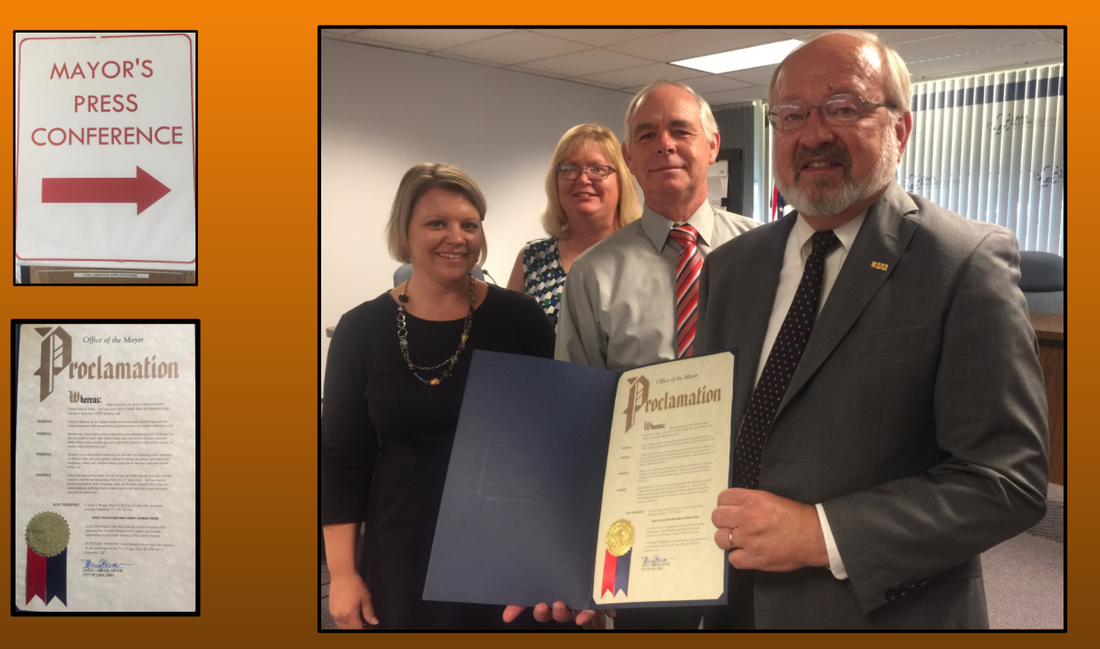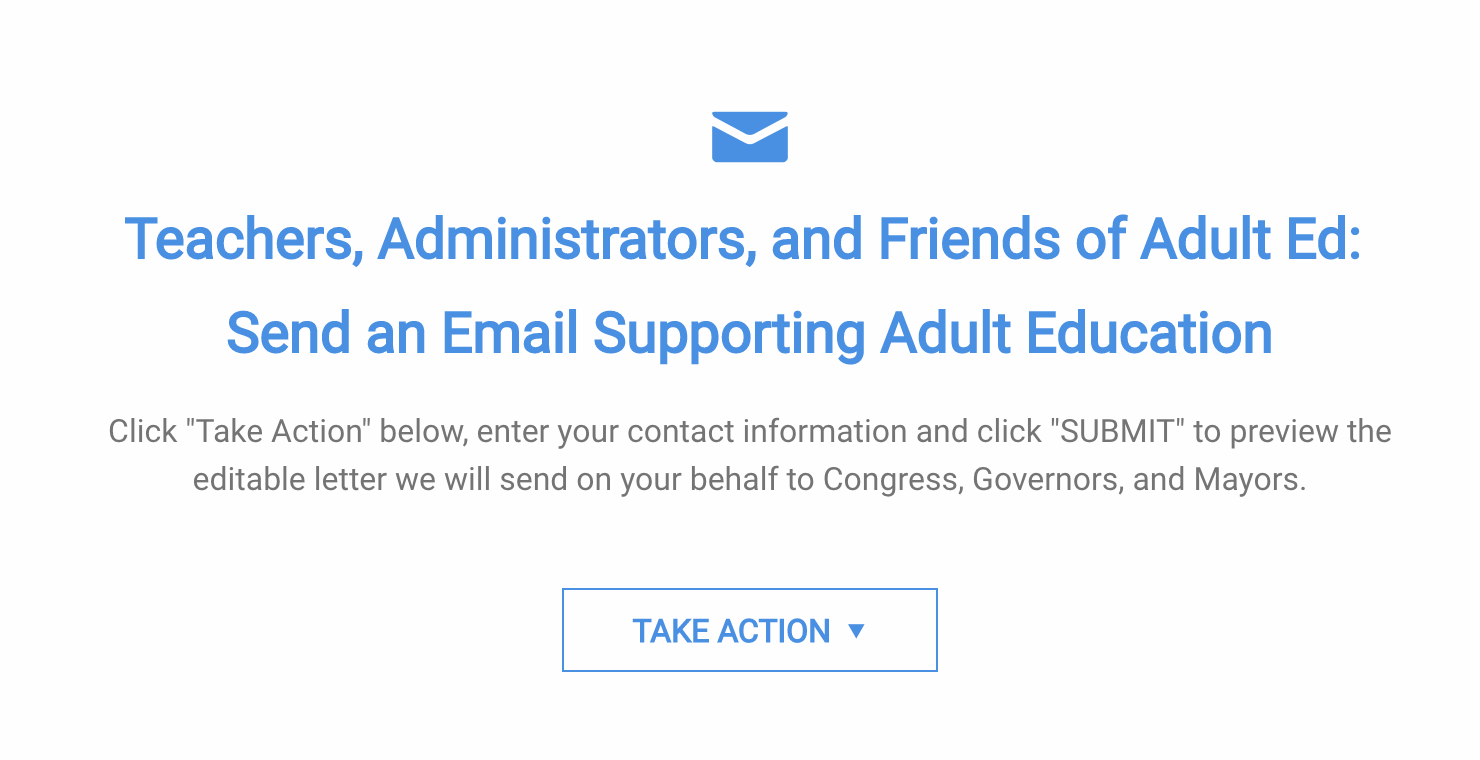|
The big event at the office today is practicing what we preach. We’ve used email, Facebook messenger word of mouth to invite everyone we know to tell our legislators to support adult education. So today three people from our office will attend Mayor Berger’s weekly press briefing. We’ll talk about Adult Education and Family Literacy week, the Literacy Council serving the community for 30 years, and the desperate need in our community for everyone, including our federal, state and local officials to get behind this. Because an educated community is a BIG deal. So what can you do today to support Adult Education? First, click here, scroll down and click the “Take Action” button. Here’s how it works: Once you enter your information, the form generates an email that will be sent from you to your representatives. It’s as easy as that to get your voice heard. The second thing you can do this week is to inform yourself about the adult education crisis. I estimate it will take you two minutes and 27 seconds to read the following post from the Educate and Elevate campaign.
America is at a crossroads. We need every person in our nation ready to contribute to America’s competitiveness. Our 55,000+ adult education leaders stand united in a national campaign to move learning opportunities forward for all Americans to achieve economic mobility. If we educate, then we elevate–our students, workers, businesses and our economic growth. Investing in Adult Education is good for the economy. It’s an investment in America’s economic engine - - we reach adults who struggle with literacy, numeracy, and problem solving getting them into the workforce pipeline so they can contribute to a company’s bottom line. Everyone needs a return on their investment. Whether it’s the U.S. companies investing in their workforce, the workers investing their time and energy learning in-demand skills, or funders that want to ensure their investments are moving the economy forward. Adult Education is a smart investment. We need all available workers ready to help our country compete. How Adult Education is Uniquely Situated to Address the Needs of U.S. Employers By 2020, the American Action Forum projects that the United States will be short an estimated 7.5 million private sector workers across all skill levels. Adult Education brings businesses options by preparing existing workers with families and competing life responsibilities with the skills that companies need through flexible classrooms and curriculum. How Adult Education Addresses the Skills Gap In a recent survey, 92% of business leaders thought that U.S. workers were not as skilled as they needed to be. And they are probably right. By 2018, 63% of all U.S. jobs will require education beyond high school. Yet, nearly half of the U.S. workforce—about 88 million of 188 million adults aged 18 to 64—has only a high school education or less, and/or low English proficiency. Educating motivated students with the skills that companies need provides qualified candidates for hard to fill positions. How Adult Education Increases Business Productivity Our nation’s competitiveness declines when talent shortages negatively impact businesses’ productivity and innovation. Companies miss out on growth opportunities, product development suffers, and profits stagnate without a skilled national workforce. America needs an “all hands on deck” approach to bring every available worker to the labor pool. How Better Educated Populations Strengthen Communities Educating adults creates stronger communities. Higher education levels are correlated with lower rates of chronic diseases like diabetes and asthma, and a mother’s education level is the highest determinate of a child’s academic success. Adult Education makes communities safer too. Inmate participation in adult education reduced recidivism by 29%. How Adult Education Decreases Reliance On Government Support The employment rate for young workers, as late as 2015, without a high school degree or equivalent stands in stark contrast to the national employment rate, with slightly less than half in full time employment. In contrast, adults with a high school degree were more likely to work full time and average 20% higher earnings ($30,000) well above the poverty line for a family of 4.
1 Comment
|
Becky HirnLiteracy advocate working for the Northwest Ohio Literacy Council and the Lima City Schools Adult Education and Career Pathways program Archives
January 2018
Categories |



 RSS Feed
RSS Feed
